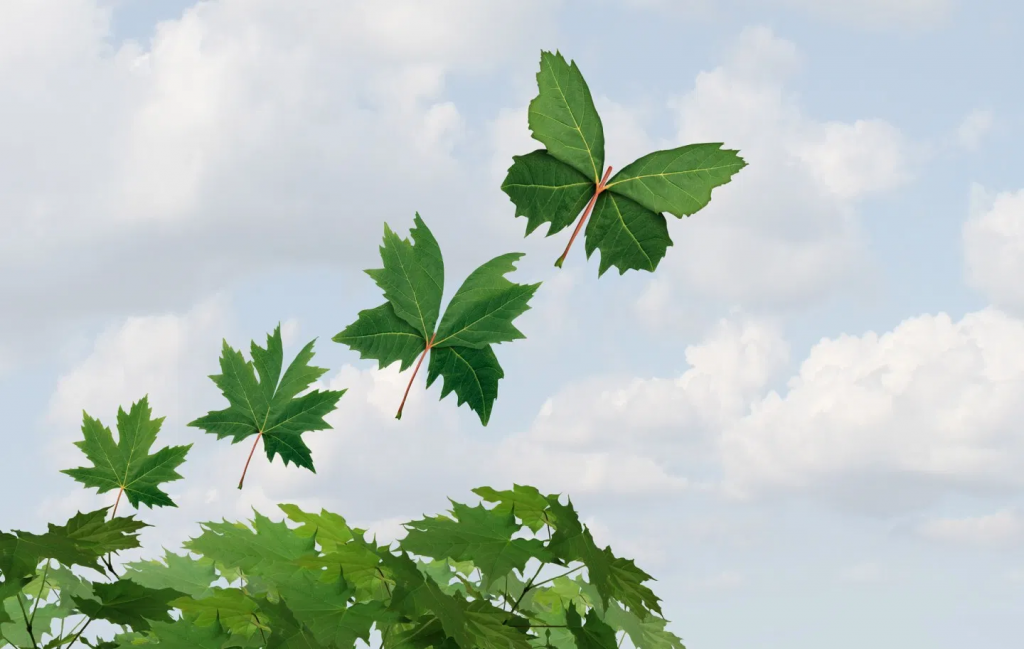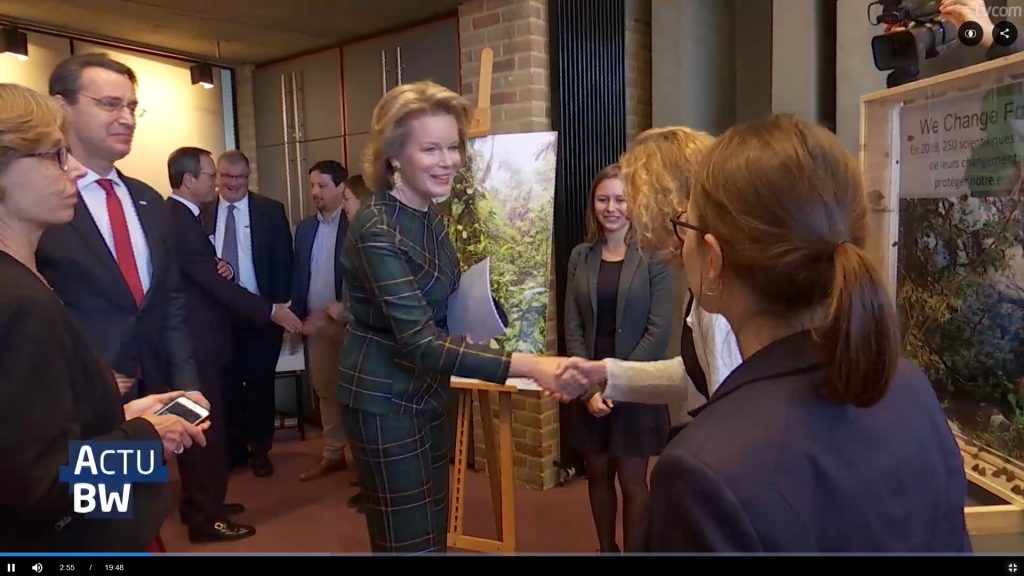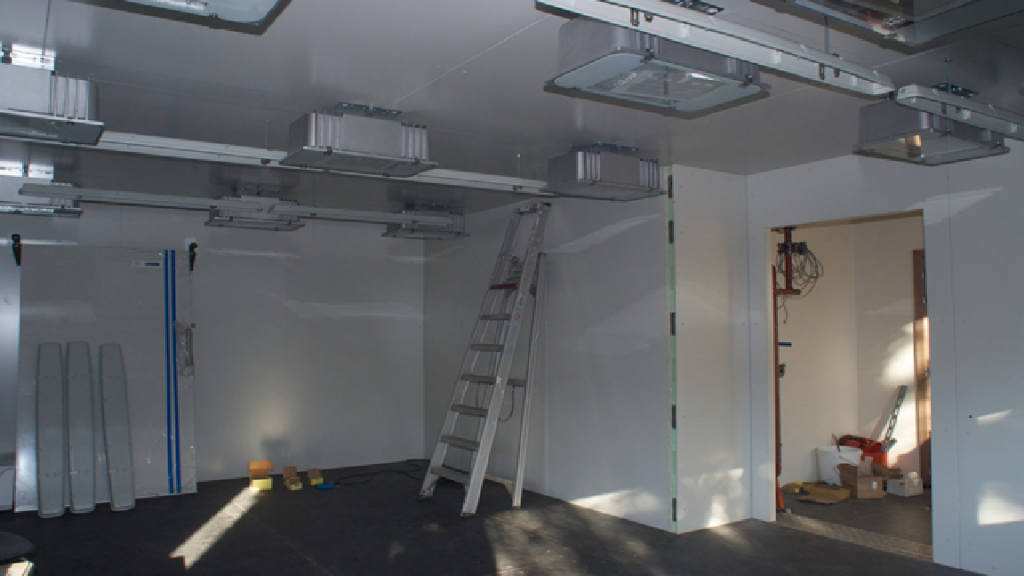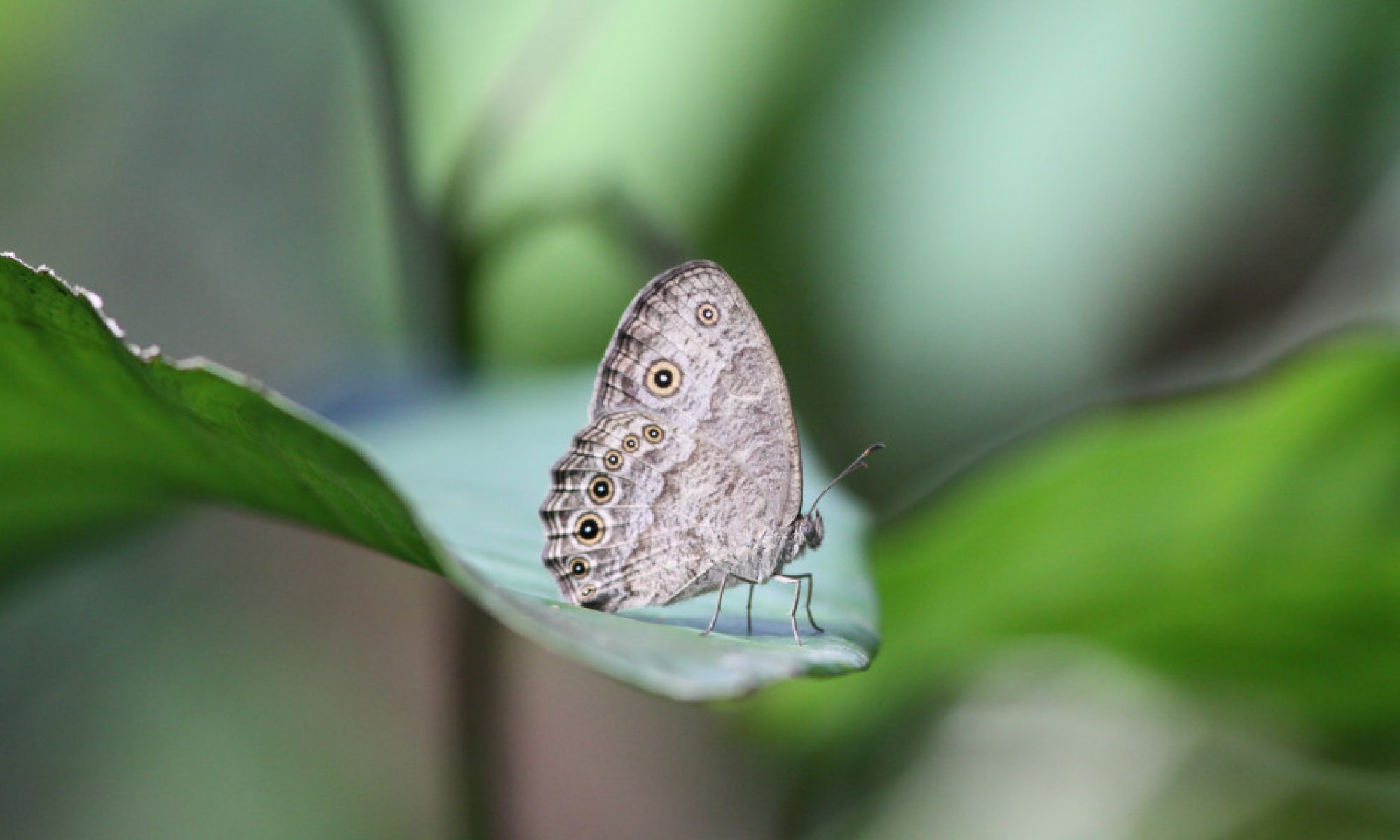
Take action with 250 Belgian scientists: #WeChangeForLife!
Profs Jean-Pascal van Ypersele (climatologist) and Caroline Nieberding (ecologist) and Dr. Lucette Flandroy gathered the testimonies of 254 Belgian scientists who decided in 2019 to change their lifestyle to protect life on Earth. In #We Change For Life, we say why and how (in English, French and Flemish).
Caroline Nieberding presented the #WeChangeForLife initiative to the Belgian Queen Mathilde and to a large Belgian audience of investors from CBC/KBC bank with JP van Ypersele in Liège. The media also reported the #WCFL initiative in Belgium.

Interactions between climate and the biodiversity crises: >300 participants at UCLouvain conference
Caroline Nieberding organised a one-day scientific conference on the climate and biodiversity crises “How human activities cause biodiversity loss : Interactions and relative contributions of human activities; what do we know, what do we need to know ?”. This 2019 conference was made 100% sustainable (see how here). Ten academic experts from the fields of biodiversity, climate warming, land use, and sustainable agriculture explained the state of the art of the problems and of the solutions. You can find all presentations (pdf files and videos) here, thanks to Prof. Patrick Meyfroidt.
Wildlife trade and consumption threatens biodiversity in the tropics
Caroline Nieberding was a member of the scientific commission on wildlife trade for the Federal Public Service Health, Food Chain Safety and Environment (2016-2018). The aim was to quantify the impacts of wildlife trade at global and local levels. She held the scientific presidency of the “One World One Health” 2019 Conference “Dead or Alive: Towards a Sustainable Wildlife Trade” organised by the Federal Public Service Health, Food Chain Safety and Environment and the Belgian Biodiversity Platform, December 4th, 2019, and dedicated to quantify the impacts of wildlife trade at global and local levels.
Communication to the media
Caroline Nieberding becomes member of the Carta Academica, a Belgian group of experts from the academic field who invest time and energy to communicate their expertise to the Belgian society, notably through a weekly article published in the national journal Le Soir. More about my interactions with the media is found here.
A room with a view

The first green Climate Room for rearing tropical insects functions at UCLouvain since 2013 ! Thanks to the financial support of UCLouvain (1) and of FNRS (2), and to the technical expertise of the UCLouvain spin-off in Sustainable Architecture “Matriciel”, a unique tropical climate room dedicated to the rearing of the model African butterfly Bicyclus anynana has been constructed for our team Evolutionary Ecology and Genetics. The warmth and humidity necessary for the butterflies (27°C and 80% of relative humidity) are produced using the heat from the ground, and the heat and humidity in the room are recycled to heat and humidify the fresh incoming air. This reduces a lot the annual cost in electricity. The technical solutions developed to implement this project under a label of sustainable development are available on demand (caroline.nieberding@uclouvain.be). As ecologist, I have a particular responsibility for displaying pioneering environmentally friendly strategies in our professional environment, and lead the way for new practices in research, teaching, and sensitizing the public inside and outside the University.
(1) Grant ”Action de Recherche Concertée” by UCLouvain for 2010-2015 (2010/15-031) “ Integrating evolution into ecological responses: changing life styles of organisms in changing environments” (2) Grants FRFC2.4600.10 and FRFC2.4560.11
